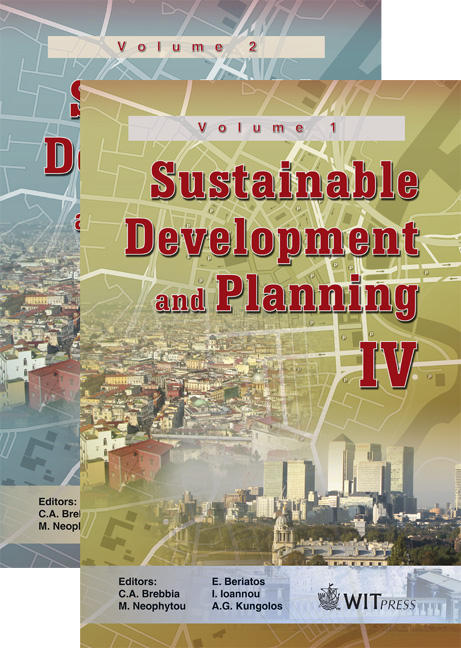Fragmentation Of The Temperate And Tropical Forests In Mexico: Implications For Their Conservation And Sustainable Management
Price
Free (open access)
Transaction
Volume
120
Pages
7
Page Range
511 - 517
Published
2009
Size
384 kb
Paper DOI
10.2495/SDP090472
Copyright
WIT Press
Author(s)
R. Moreno-Sanchez
Abstract
Recently a comprehensive, consistent evaluation of the fragmentation of the forests at the national level in Mexico has been carried out. This paper discusses the implications of the results of this study for the conservation and sustainable management of the forests in the country. It is concluded that the information on the level of fragmentation of the remaining forests can assist in: changing the way forest conservation and restoration projects are conceived; in deciding how areas are prioritized to carry out these projects; and in identifying the forest types and locations that due to their level of fragmentation are unable to support specific forest ecosystems functions or that could be more sensitive to degradation processes. Also, the fragmentation information is an important parameter that can be incorporated into forest management plans to develop more effective management plans that target the specific ecological conditions created by the level of fragmentation in the remaining forest masses. Keywords: Mexico, forests, fragmentation, conservation, management. 1 Introduction Anthropogenic and natural processes have significantly changed the extent, composition, structure, and spatial pattern of the forests in Mexico [1–3]. These changes have affected the capacity of these ecosystems to sustain flora and fauna species, and the production of goods and services at different temporal and spatial scales (e.g. [3–10]). The commonly reported remaining area and deforestation rates are important parameters to estimate the sustainability of forest ecosystems. However, equally
Keywords
Mexico, forests, fragmentation, conservation, management.





